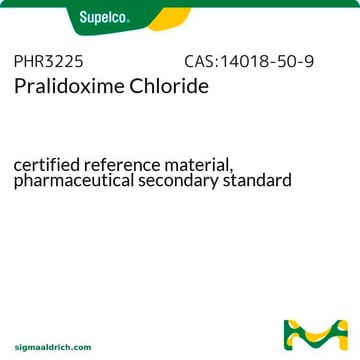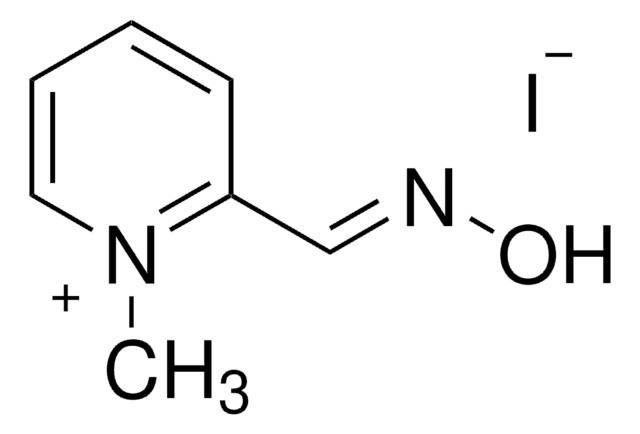51063
Obidoxime chloride
≥95.0% (HPLC)
Synonym(s):
1,1′-(Oxydimethylene)bis(pyridinium-4-carbaldoxime) dichloride, Bis(4-formylpyridiniomethyl) ether dioxime, Toxogonin
About This Item
Recommended Products
Quality Level
Assay
≥95.0% (HPLC)
form
powder or crystals
SMILES string
[Cl-].[Cl-].O\N=C\c1cc[n+](COC[n+]2ccc(cc2)\C=N\O)cc1
InChI
1S/C14H14N4O3.2ClH/c19-15-9-13-1-5-17(6-2-13)11-21-12-18-7-3-14(4-8-18)10-16-20;;/h1-10H,11-12H2;2*1H
InChI key
ZIFJVJZWVSPZLE-UHFFFAOYSA-N
Looking for similar products? Visit Product Comparison Guide
General description
Biochem/physiol Actions
Legal Information
Storage Class Code
11 - Combustible Solids
WGK
WGK 2
Flash Point(F)
Not applicable
Flash Point(C)
Not applicable
Personal Protective Equipment
Choose from one of the most recent versions:
Already Own This Product?
Find documentation for the products that you have recently purchased in the Document Library.
Our team of scientists has experience in all areas of research including Life Science, Material Science, Chemical Synthesis, Chromatography, Analytical and many others.
Contact Technical Service







